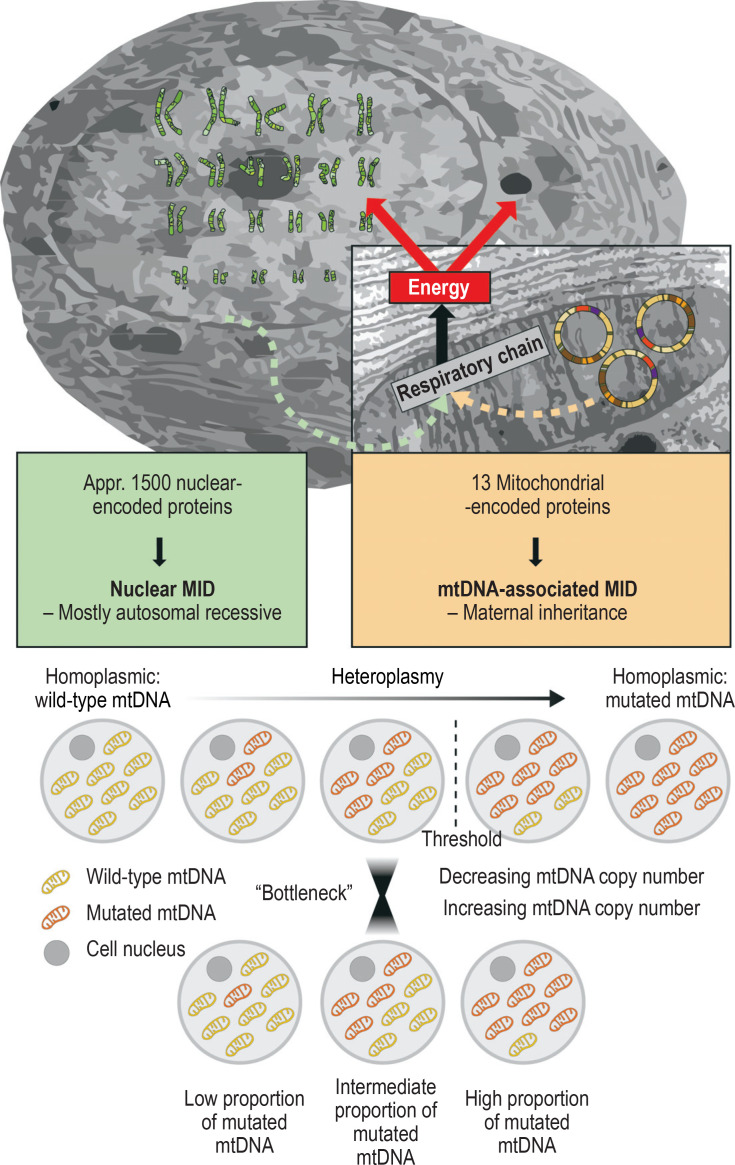Figure.
Mitochondrial DNA (mtDNA) encodes for only 13 proteins in the mitochondrial respiratory chain. A total of around 1500 proteins, which are primarily encoded in the cell nucleus on the chromosomes, are needed for the structure and function of mitochondria. Accordingly, disorders that are attributed to mutations of nuclear-encoded genes are inherited according to Mendelian rules, mostly in an autosomal recessive pattern. In contrast, disorders caused by mtDNA mutations are maternally inherited. In most cases, not all mtDNA molecules carry the mutation, and a mixture of mutated and wild-type mtDNA is present (heteroplasmy). Cellular dysfunction mostly develops above a threshold of approximately 60% mutated mtDNA. The degree of heteroplasmy can vary from generation to generation due to the decline and subsequent increase in mtDNA copy number in embryogenesis (mitochondrial bottleneck), as well as from tissue to tissue, and plays a major role in determining symptom severity. MID, mitochondrial disorder

